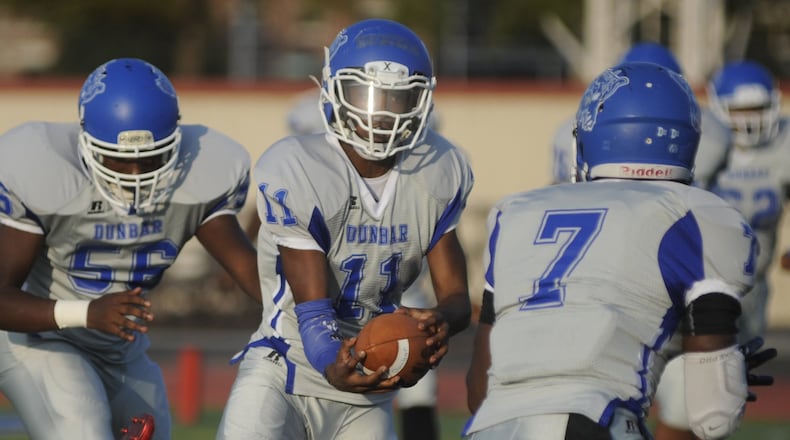Dayton Public ended its contract with Kettering Health in May to provide athletic trainers. Andrew Hayes, the CEO and founder of Go4HealthCare, who came to the meeting on Tuesday, said he thinks athletic trainers would be available by Friday for the football games.
But the model the service offers is different from previous hospital contracts. Dayton Public will post their game and rate to the app, and an athletic trainer in the area will pick it up. Previously, the responsibility was on the hospital to provide an athletic trainer.
Hayes said most posts to the app are picked up within 24 hours.
Eventually, DPS athletic director Victoria Jones said Go4HealthCare will be providing six athletic trainers, one for each high school, but because the contract hadn’t been signed yet, the provider couldn’t start asking for people to move to Dayton.
Jones said the district had been working on this contract since early June, when the Kettering Health contract ended. DPS had to make sure the program worked for their needs and explore other options, she said.
Five Rivers Health has been providing doctors at Welcome Stadium games and will continue to do so, Jones said.
DPS said because the sports year started without athletic trainers, coaches received additional first aid training, the district purchased Guardian caps, which are football helmets meant to minimize impacts, kept emergency equipment on site and had hydration sidelines to ensure students didn’t overheat.
Jones said DPS’s contract with Kettering Health ended earlier than other districts in the area.
“I think because our contract ended, we got hit before the other people,” Jones said.
This model is typically how an athletic trainer contract works in the Dayton area, with hospitals like Premier and Kettering providing athletic trainers for either a very low cost or free to the district in exchange for advertising and the expectation of future clients who will funnel into the hospital system.
Katie LaRue-Martin, the president of the Ohio Athletic Trainers’ Association, said Dayton is a unique market in the hospitals not charging schools for these services. In other markets, like Columbus, it’s more common for districts to pay some amount of money for this.
She said she did not know exactly why the market has been changing in Dayton, but she suspects it has to do with the many changes in hospital systems after the COVID-19 pandemic and seeing that hospitals in other markets charge for athletic trainer services.
LaRue-Martin said she’s found that the number of athletic trainers in the state is remaining steady, but there is now more competition for the profession. Athletic trainers can work in factories with workers who have on-the-job injuries, in secondary schools and in physician’s clinics.
“Graduates really have their pick of what they want to do,” LaRue-Martin said.
She said the association has referred people to Go4 in the past who have requested additional staffing for state games.
Athletic trainers can treat some injuries on the field, like broken bones or a sprained ankle, but they also monitor athletes with a concussion from a contact sport and ensure athletes are properly hydrated during hot games.
Hayes said the way athletic trainers are trained has changed, with trainers now needing a master’s degree. However, hospitals don’t pay athletic trainers a comparable salary for a master’s degree requirement. The National Bureau of Labor Statistics says on average, athletic trainers make about $67,920, with elementary and secondary athletic trainers making the most on average.
In comparison, nurse practitioners, primary health care providers with a master’s degree, earn about $124,680 on average in the U.S., according to the NBLS.
About the Author

